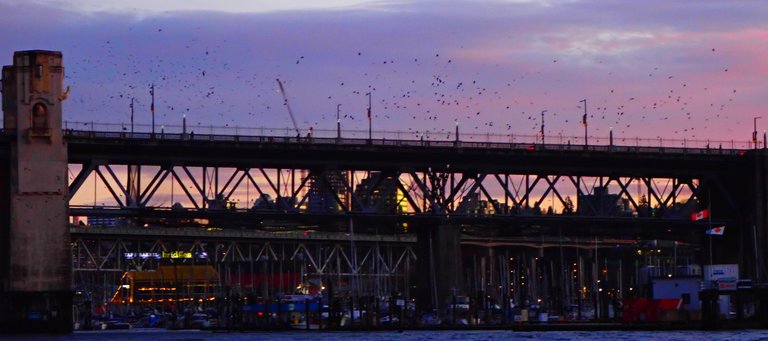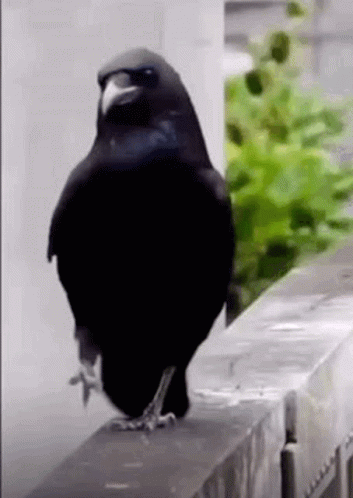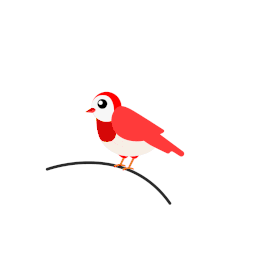
Crows are a chaotic noisy bunch. You would think all that intelligence and cleverness would make them ordered and well-behaved birds. Not so. They're chaos incarnate. Every time I see one or two hanging out, I think, what are you guys up to? I know it's some mischievous piece of clever business.
A crow once crashed on the balcony, or so it seemed. The creature was thrashing all around and raising a racket. It turned out to be a juvenile crow that was perhaps learning how to fly or getting away from racoon predators. The parents came up and checked it out then left. Greaaaaat, I thought, as the creature cried loudly and jumped from place to place, knocking over everything in the process. Finally, something clicked after it jumped on a pot, and then it flew off, rather deftly, I have to say.
"If you knew how to do that, then why didn't you do it in the first place?" I remember thinking.
The Pacific Northwestern crows that call this place home are smaller and lower pitched than their American crow counterpart (Bird, 2016). Being coastal, they have learned how to forage for clams, barnacles, crabs, and fish. I sometimes see them taking clams or other shelled creature up in the air and dropping it on cement to crack it. I even saw one trying to catch a rat among the ocean rocks, where sea life gets trapped in the ebbing tides. They have a varied diet that includes the garbage people leave around.
In the photographs, the crows were flying over a bridge in large numbers. There was a wind storm happening, so that may have something to do with their behaviour. It was an eerie spectacle in the twilight, but that's crows for ya.

Resource
Pocket Birds of Canada by David M. Bird (Ed). 2016.
 |  |  |  |
|---|---|---|---|
| X | InLeo | NFT Showroom |
Posted Using INLEO


